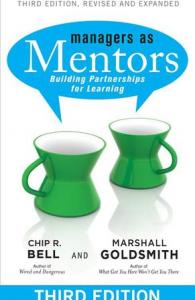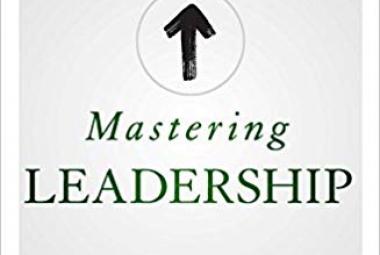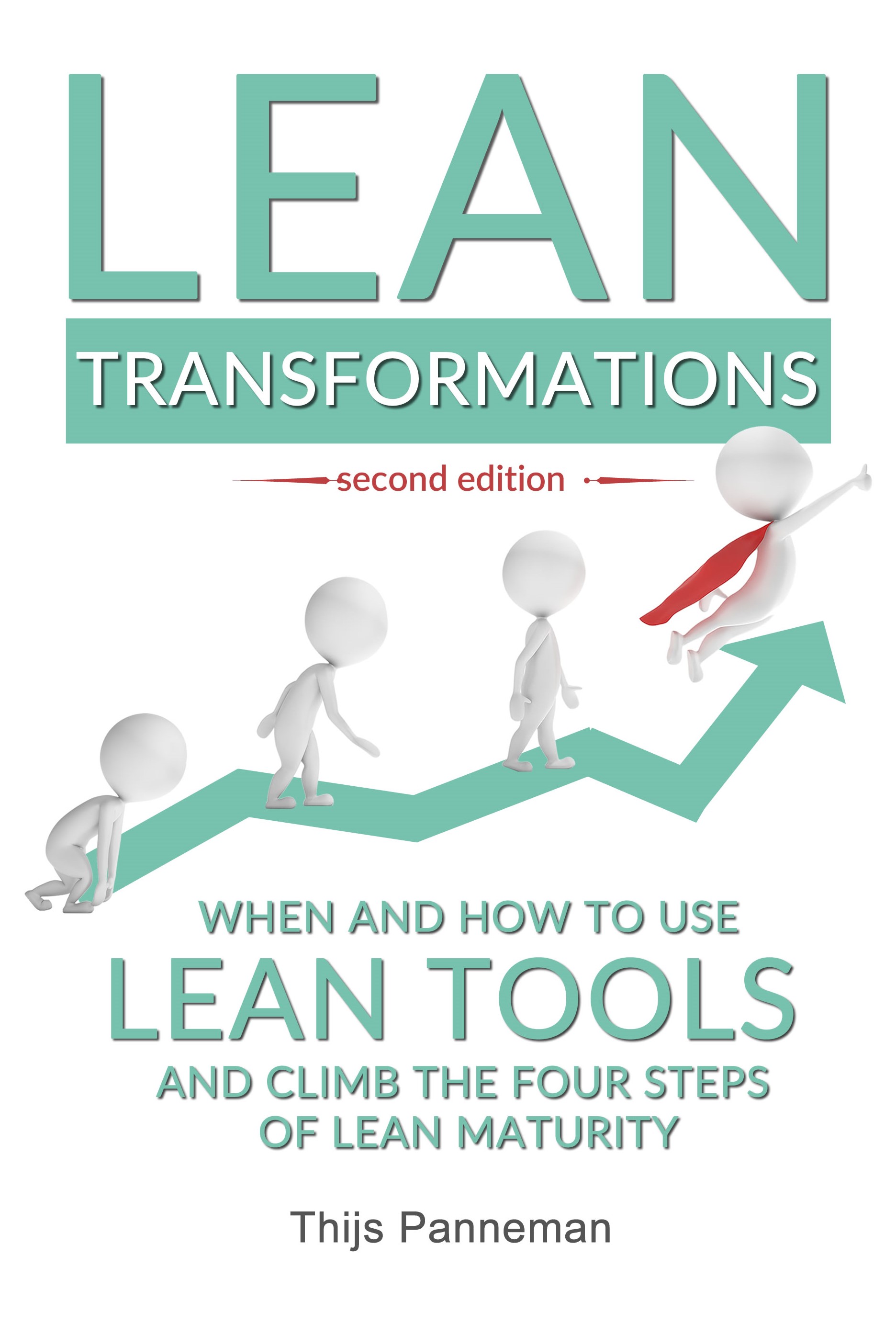Managers as Mentors describes the four phases of an evolving coaching relationship (surrendering, accepting, gifting and extending). Understanding these phases can help any mentor to be more effective.
The foundation for a good mentoring conversation is the relationship between the mentor and his or her protégé. The largest part of this book therefore describes ideas to improve this type of relationship, so that both parties can learn.
Among others, this article describes the 4 steps of creating a bond, 4 steps for advising your protégé, 4 techniques for asking questions and 4 methods of showing that you have really listened and understood to your protégé.
The first part of the book focusses on the MENTOR-MENTEE RELATIONSHIP. Bell starts with the definition of a mentor, which is someone who helps the mentee to learn something he would otherwise would learn slower, less well or not at all. The relationship between the mentor and mentee is a voluntary relationship that has nothing to do with power. Good mentors are like friends or family, which means the relationship should create a safe environment in which the mentor shows patience and acceptance for the mentee, to make him feel comfortable enough to be open and honest.
The mentor can therefore be seen as a supporting partner which supports the mentee in achieving his goals. The mentee himself is responsible for the progress he makes and the mentor is responsible for offering enough support and makes sure he learns himself as well.
The first phase of the coaching relationship is SURRENDERING. What can you do as a mentor to form a supporting relationship? Bell describes the following steps.
The first step describes the creation of fellowship (I am like you). It is important that the mentee knows that the two of you are on the same level. Therefore, you can make friendly gestures like offering a cup of coffee and reflect on his or her emotions to let him know you can relate to him, having experienced similar situations. Showing a positive attitude and really listen to what the mentee has to say also positively influences the relationship.
When the foundation for the relationship is cleared, it is important to discuss the goals and moments in which you are suppose to give feedback. For instance, if a team leader would like to be coached on leading a team board meeting, I could come to the meeting once a week and give personal feedback afterwards.
Another way of keeping your relationships pure is to think about the way you ask questions. The best questions are those that require the mentee to use what Bell calls higher-level thinking: evaluative questions (what would you do differently next time) or comparison questions (how does this situation differ from that one?). Try not using the word ´why´ as a starting word of the question, because that can lead to the mentee feeling judged and negatively influence his openness.
The second phase of the coaching relationship is ACCEPTING, in which the mentors focus is on understanding the mentees situation and setting aside bias and prejudice. It is important in this phase of the relationship, that the mentor makes sure the mentee knows that he has understood his needs and fears, which are connected, without judgement.
There are 4 Main types of needs that can be identified, each with their own fear. The need for performance with a fear of failure, the need for recognition combined with a fear of rejection, the need for power with a fear of showing weakness and the need for control with the fear of making mistakes. It is your job as mentor to treat these fears as a rational thing.
Whenever you would like to show your mentee that you have really listened to him, you can summarize what you´ve heard. Bell describes 4 ways of summarizing, all on which the power lies in using different words than the mentee has used: restating the same story in your own words, making a general statement a specific one, a specific statement a general one or rephrasing the statement by using the opposite terms.
After listening to the mentee and understanding where he is coming from, it is time for the GIVING phase. The most important thing to keep in mind is not to come across as a know-it-all or too bossy. Bell describes the following 5 tips not to be too didactic. tip one: remove words like ´I want you to´ and ´you should´ from your vocabulary. That sounds too much like a boss and less like a friend. Tip two: record and listen to yourself and ask yourself whether you sound like a boss or a friend. Tip three: remove things from the environment that might suggest that you are not equal, like a desk or even clothing style. Tip four: use perspectives of others to create a newer more effective perspective on things and finally, tip five: take learning seriously, but yourself not too much.
Take enough time for coaching. By taking the time for your mentee, you show that his efforts and performance are important to you. Do not look at your watch at all during your talks, that is a sign of disinterest because you are obviously anxious to go somewhere else. When you do have a smaller time frame available, choose to do a part of the coaching topics in a good way instead of all of covering bits and pieces of all the topics.
Use your passion to inspire. Passion is honest, authentic and contagious, so it is advisable to show it when you have it.
A final tip in giving advice is to split positive and negative feedback. When you use both in the same sentence, the two compensate for each other and therefore the message gets lost in the middle. Words like ´but´ should therefore also be banished from your vocabulary.
Finally, in the EXTENDING phase, focus is put on inviting trainee think for himself. This means the mentor will less and less explain the details of what thinks that needs to be done, but focusses on asking questions so that the mentee can find out the answers himself. This way, the mentee does the thinking and the doing.
The mentor needs to provide the right information for the mentee to be able to solve his or her own problems, which includes background information such as the organizational vision and the goals for the department. In short: the mentor explains the big picture, and the mentee defines his own next steps.
Teaching people how to do their own thinking is an important preparation for abnormal situations, so make sure you ask the mentee for the reasoning behind his actions, to improve the thinking and reflecting part.
In an organization where it is expected that all employees are part of the continuous improvement program, it is important that managers transform themselves into mentors to be able to coach their team members in the skills that are needed to transform the organization.
Managers as Mentors is stacked with tips on improving the relationship between the mentor and mentee, of which this article covered only a few. I can encourage all that would like to go on the journey of becoming a coach, to read this book.
Continue to:
Death by Meeting – P.Lencioni (summary)
REFERENCE:
Bell, C.R, 1996, Managers as Mentors - Building a Partnership for Learning, San Fransisco: Berrett-Koehler Publishers (order this book)















